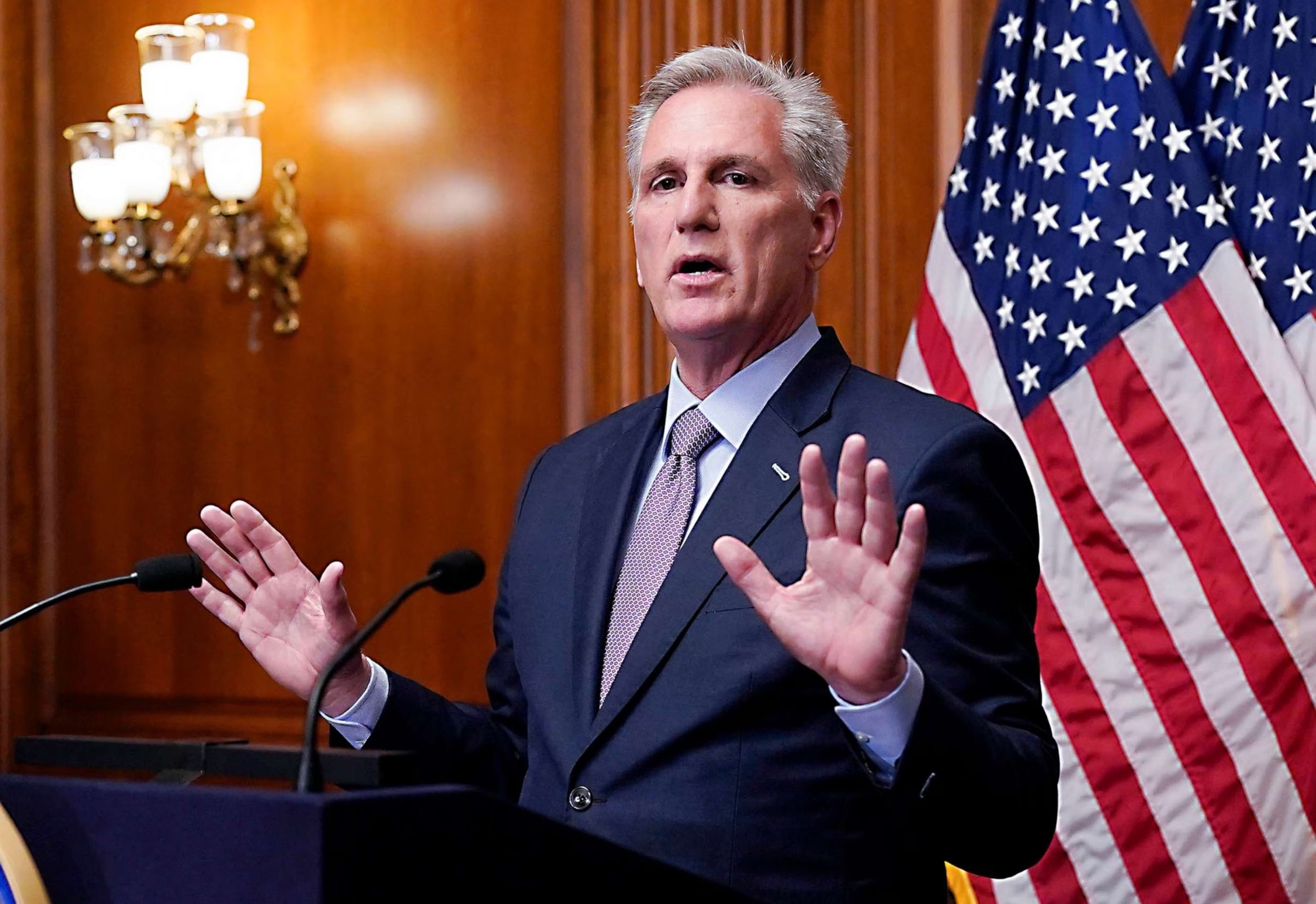Is McCarthy’s Removal a Win for Democrats?
Photo Via Associated Press
ALESSIA COLUCCIO: Almost nine months after Kevin McCarthy was narrowly elected as Speaker of the House, eight GOP members and the entirety of the Democratic Party ousted him from the speakership.
McCarthy was voted into the speakership in January without full support from his party. After 14 rounds of voting, he made concessions to six members on the extreme flank of the GOP in an attempt to prevent them from, once again, voting against him. McCarthy agreed to a single-member motion to vacate and gave right-wing extremists one-third of the seats on the House Rules Committee in an attempt to placate them.
Especially in regard to legislation, McCarthy’s decision to focus on appeasing a small faction of the Republican Party, rather than promoting bills with bipartisan support, angered Democrats.
Minority Leader Hakeem Jefferies said that Democratic leadership did not feel inclined to rescue McCarthy in early October when Representative Matt Gaetz filed a Motion to Vacate the Chair for this reason.
Despite the unprecedented nature of the Houses’ decision to remove a Speaker mid-term, Democrats have received little backlash from the public, especially from members of their party. Will Severn, a freshman in the College of Arts and Sciences at Georgetown, sympathizes with Democratic leaders’ frustration with McCarthy and supports their decision to vacate.
“In terms of the debt ceiling vote, the continuing resolution passed to keep the government open, and McCarthy’s announcement of an impeachment inquiry into President Biden, I definitely think that the frustration of Democratic members in the House with Speaker McCarthy is understandable.”
In addition to McCarthy’s own policy decisions, Severn highlights that his public support of former President Trump is another deterrent to Democratic support.
“A decent percentage said going into the caucus meeting that they can’t in good conscience vote for this man, especially due to his willingness to forgive the former President for actions relating to January 6th.”
Others such as Nico Cefalu, another freshman in the College of Arts and Sciences, believe that siding with more moderate conservatives and voting against the motion to vacate would have been a better decision by Democrats.
“I’m no fan of Kevin McCarthy, but I think saving him would’ve been a savvy move for the Democrats. First, it would’ve shown the American people that the Democrats put the country before partisanship, “ said Cefalu in response to an opinion poll sent to Georgetown University College Democrat members. “Second, it would’ve given McCarthy the breathing room to move away from the extreme elements of his party, leading to a more reasonable House.”
Initially, the idea of Democrats voting “present” was considered, since it would allow them to avoid voting affirmatively for McCarthy while lowering the threshold needed for him to remain in office. However, Democratic members vowed not to help McCarthy without concessions.
Matt Glassman, a Senior Fellow at the Government Affairs Institute, believes that by making concessions to Democrats, McCarthy risks more Republican members abandoning him. Ultimately, McCarthy did not risk losing more GOP support and refused to make concessions, resulting in Democratic members unanimously voting against him.
As a result of their decision to oust McCarthy, the House still is without a Speaker, suspending its legislative and budgeting functions. McCarthy said in an interview that he blames Democrats for “bringing chaos to Congress.” Yet, Republican leaders still have not come to an agreement on a new speaker nomination, consistently falling short of the 217 votes needed.
Severn believes that the GOP’s division over the selection of a new speaker is a gain for the Democratic party. As the party’s members become more polarized, there is an increasing likelihood that moderate members of the GOP will turn to supporting Democrats.
“As the Republican party continues to nominate candidates like Jim Jordan for speaker, I think the Democrats are going to court a good chunk of independent Republicans,” said Severn in an interview. “Republicans are only hurting themselves. They’re putting Democrats in a better position heading into the next election both on the congressional level and on the presidential level.”
Alessia Coluccio is a guest writer for On The Record. She is a sophomore in the College of Arts and Sciences, majoring in Government and minoring in Journalism and STIA (Science, Technology, and International Affairs).

